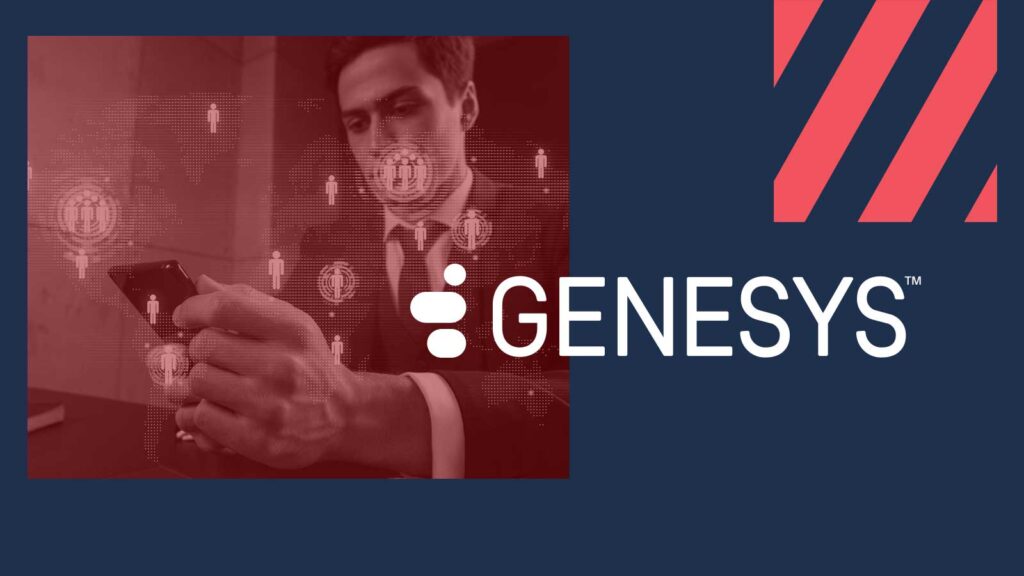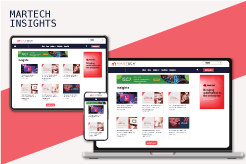Genesys, a global cloud leader in AI-powered experience orchestration, announced the release of a new research report, “Generational dynamics and the experience economy.” The report delves into the intricate dynamics of four distinct generations — Generation Z, millennials, Generation X and boomers — to help businesses understand the evolving preferences and needs of today’s consumers and workforce.
Marketing Tech Insights: Nooks Announces $43 Million Series B and Launches AI Sales Assistant Platform
From varying attitudes toward AI adoption in the workplace, to differing expectations for customer service personalisation, to preferences for communication channels and brand values, the report’s findings emphasise the complexity for organisations to orchestrate experiences that meet diverse sets of needs effectively.
While the Genesys research revealed distinctions among generations spanning North America, South America, Europe, the Middle East and Asia-Pacific, it also revealed a striking number of similarities. Despite cultural differences, customers and employees share many of the same expectations for brands.
For example, quality and price are the most important factors in consumers’ buying decisions across all regions and among every generation. As employees, Gen Z and millennials worldwide value a supportive work environment and culture, flexibility and work-life balance over good compensation, recognition, and benefits.
Each generation brings its own unique perspectives, preferences and expectations to their brand interactions. To drive loyalty today, organisations need to deeply understand their customers and employees to ensure their experiences resonate.
Key Findings
- Millennials Set the Bar for Customer Satisfaction: Both as employees and as customers, millennials have the highest standards for customer service of any generation, globally. Their expectations surpass those of other generations, for example, when ranking importance of personalised interactions (65% versus 49% of boomers), a seamless transition between different communication channels (71% versus 54% of boomers), convenient self-service options (63% versus 31% of boomers) or proactive status updates (71% versus 62% of boomers).
- Younger Generations Influenced by Technology: On a global scale, 55% of millennial consumers reported that a brand’s use of emerging technologies in customer service was a critical consideration, with less than half of boomers reporting the same (22%). This desire manifests in their perspectives as employees as well. Sixty-seven percent of Gen Z and millennials expect their employers to provide the latest technologies, with Gen X and boomers close behind at 60%.
- Peer Opinions Move the Needle: Younger cohorts, notably Gen Z and millennials, place a high value on the opinions of others, with 68% of Gen Z and 76% of millennials saying that they rely on customer reviews and ratings in their purchase decision-making. Gen Z followed closely behind at 62%, while only 39% of boomers said the same.
- Personalisation Should Be a Priority: Across all generations, personalisation across channels emerges as a critical expectation, with younger cohorts being notably more willing to share data for personalised service. More than two in five (43%) of Gen Z and millennials reported their willingness to provide additional information in exchange for a personalised experience.
- Expectations for AI: Though regional and generational variances exist, most employees do not have a fear that AI will replace their jobs. Only 10% of GenZ/millennials and 7% of GenX/boomers worry about this in the long run. While nearly a quarter (23%) of GenZ/millennials and 19% of GenX/boomers already see AI’s potential to improve their job efficiency, organisations should see this as an opportunity to educate and train their employees on the benefits of AI.
- Employees United on Flexibility: While many businesses struggle to strike the right return-to-work balance, employees of all ages agree on the need for flexibility. Seventy-one percent of Gen Z/millennials said they would prefer to work for a company that offered options for hybrid or remote work. Gen X/ boomers were closely aligned at 70%. Not only is flexibility a preference, it’s also an expectation. Of the Gen X and boomers surveyed, 71% stated that flexibility and work-life balance is a top expectation of their employer. Sixty-six percent of Gen Z and millennials agreed.
In a time where remarkable experiences are the expected — whether a large global enterprise or small, local business — the report underscores the transformative power of delivering on the unique expectations of each generation to foster long-term loyalty and business growth.
EJ Cay, VP of Genesys UK&I, said: “Our latest findings shine a light on the unique expectations of each generation, offering UK businesses an exciting opportunity to foster long-term loyalty and drive growth. Millennials, for instance, are raising the bar with their demand for personalised services and cutting-edge technology. This could be a game-changer for organisations looking to improve customer satisfaction levels. Additionally, the widespread call for flexibility and supportive work environments across all age groups is a clear message that can’t be ignored. By tuning into these diverse preferences, UK organisations can craft standout experiences that deeply resonate with their customers and employees, paving the way for sustained success in an ever-evolving market.”
Marketing Tech Insights: Informatica Unveils Blueprints to Streamline Generative AI Development
For media inquiries, you can write to our MarTech Newsroom at news@intentamplify.com



